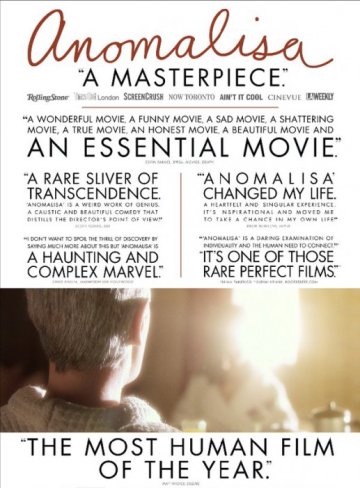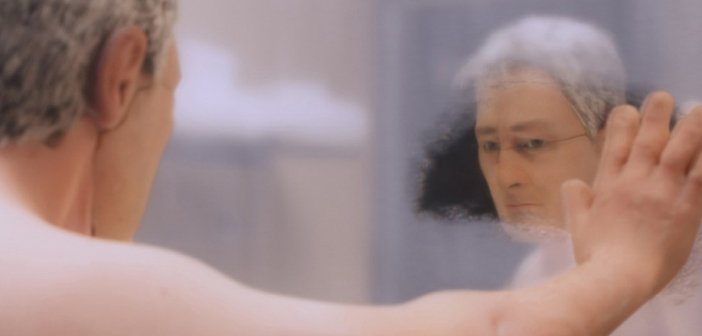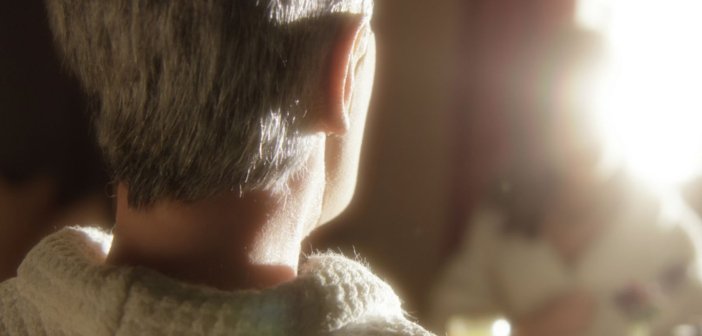Film Review | Anomalisa is an Unforgettable Cinematic Experience
GO SEE THIS FILM, IT’S A GEM, AN UNFORGETTABLE CINEMATIC EXPERIENCE. THE END*.
*Unfortunately Peter the film editor has informed me that I needed to write a longer review than the above, so let me elaborate.

You forget films can be like this. That rather than tell you about important contemporary issues or immerse you in character dramas, that they can also strike right at the heart of how it feels to exist. How fucking strange it is. To be alive. There are so many emotions and reflections that spring simply from that, and we feel them all the time but don’t see them on screen. The confusion, the fears, the loneliness, the joys, and the exhilaration of being a sentient blob of flesh wandering on a big hurtling rock for 70-odd years or so, sandwiched by darkness. Anomalisa is just like it says in its title: it’s an anomaly, a film out of step, packed to the gills with ideas and emotions about being human.
For all that, it’s also a very simple film. Set over two days, the film follows Michael Stone, an English customer service guru, who flies into Cincinnati to speak at a conference. Checking in at a hotel he decides to catch up with an ex who lives in town, the memory of whom has lingered and drifted after him all through his married life, setting off a night of strange discoveries. The film grew out of an audio only stage piece written by Charlie Kaufman (Being John Malkovich, Adaptation, Synecdoche New York) and is co-directed by him along with Duke Johnson (best known for the Community episode ‘Abed’s Uncontrollable Christmas’).
Where the story sounds simple, the style is not. It uses stop motion animation with highly detailed 3-d printed puppets, to create an uncanny juxtaposition – strikingly real faces and emotions in a visibly artificial world. There’s no obvious reason for this to be animated – the story takes place in mundane locations, and there’s no fantastical moments that couldn’t be much more easily filmed live. Instead it was painstakingly animated over 2 years through initial funding via Kickstarter.
The result of all that work is a film that makes the world feel peculiar again. Watching the opening I suddenly found myself perplexed at how odd taxis, phones, hotels, naked bodies, and cocktails are. Seeing them recreated so crisply, so ‘almost real’, makes you consider them anew. Soviet critic Shlovsky once wrote how art can ‘make the stone stoney’ by putting you at an angle to reality and making you see it, really see it again, removing the dust of familiarity from it. Anomalisa makes the world world-y, giving you the distance you need to find everyday life strange.

And there’s the audio. About ten minutes into the film you start to notice something strange – Michael’s wife sounds eerily familiar, just like his son, and the hotel bellboy, and the cabdriver and… well that’s when it hits you that they’re all the same person. While David Thewlis plays Michael, almost everyone else is voiced by Tom Noonan. The story really starts when Michael hears a new voice, an anomaly in his world, and rushes out to catch it. Suddenly what seemed like just a strange stylistic choice takes centre stage and becomes a key dramatic tension of the film. The film also teases a literal explanation – Michael is staying at Hotel Fregoli, and Fregoli syndrome is the very real psychological delusion that everyone else is just one person in disguise.
This is the seventh Charlie Kaufman script to make it to the screen. I still remember the feeling of watching Being John Malkovich for the first time in 1999 – a sudden ‘Wait, you can do this?’. I’d never seen something so comfortably surreal, tilting the world to one side to get a clearer view of one of life’s anxieties – the fact that we’re trapped inside ourselves for the whole of it. Since then he’s become the only scriptwriter to be talked about more than the director on each film, his name a shorthand for thoughtful comedies with bizarre concepts.
An idea that’s become ever clearer in his work is the struggle to find something honest and real in the world, and then to hold onto that and articulate it. Whether it’s Charlie trying to write a script about flowers in Adaptation, or Joel trying to hold on to his real connection with Clementine in Eternal Sunshine of the Spotless Mind, there’s a real and urgent search for the authentic and sincere amid the bewildering haze of the world. Anomalisa takes this theme and uses the device of voices to make it even sharper.
The film got me wondering – what makes these films work? I mean if anyone asked me ‘Want to come see a film about how empty and sad life is, it’s got a depressed male protagonist loosely based on the author?’ I’d probably make any excuse to avoid it, imagining a black and white film by a philosophy graduate. But tell me it’s by Charlie Kaufman and I’d punch a nun for a ticket. What’s the difference? One thing is – these films are very funny. In Anomalisa there’s a lot of tiny jokes peppered throughout that give the whole film a playfulness that’s hard not to like. Also, they’re perfectly structured around the central tension & desires of the protagonists. Look at Eternal Sunshine again and notice how cleverly the film balances Joel’s internal wanderings with the plot progression of the mind-hacking team to keep the momentum of the film pushing forward.

Anomalisa is a very tightly written script, as it knows what it wants to achieve and is careful to keep the viewer engaged along the way. There’s one big speech in the film, but it’s hard earned – it’s important dramatically and for the characters, not simply broadcasting the themes. Above all – the films feel honest. Anomalisa contains the most honestly tender and funny sex scene I’ve seen in years, and it’s between two puppets.
The film captures something in life so rare – how in all that mad fog of habits and obligations, among all that noise, we find a voice that sings to us, a voice that steps out from the rest, and makes the world feel fresh and new again, that renews us. We don’t feel alone any more, we feel like we truly know someone, and they’re the one piece of magic in the world. And then…. it’s gone. Love fades. The clock strikes midnight and the carriage becomes a pumpkin. That voice fades back into the others – the fog rolls in and envelops them. We’re shut out from knowing that person again truly. Trapped inside ourselves again, all we have is the memory of that brief moment of liberation, where we escaped outside our identity and felt absolutely and forever alive. We’re locked back up, imprisoned into our system of life which we tried to outrun.
It’s a masterpiece that not only cements Kaufman as the most daring and interesting scriptwriter, but one of the most daring and interesting writers working today full stop.
Anomalisa is in Irish cinemas on March 11th. Check out the trailer below.
[youtube id=”vrrU3is7qvU” align=”center” autoplay=”no” maxwidth=”750"]
Featured Image credit

